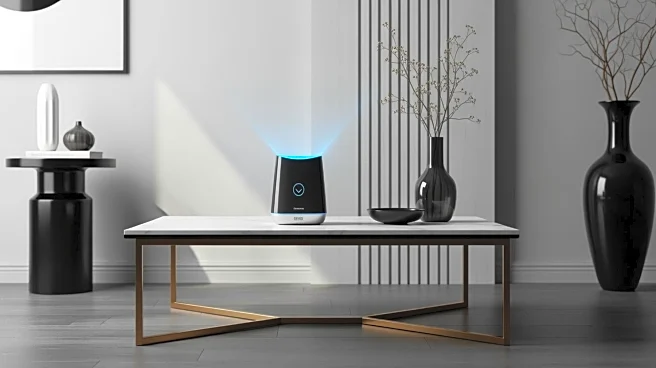What's Happening?
A recent study conducted by Realtor.com has identified key home trends that are influencing buyer decisions in 2025. The study analyzed active for-sale home descriptions to determine which features are most
popular among buyers. It found that efficiency-boosting upgrades and eco-friendly features are gaining traction, with WaterSense fixtures emerging as a top choice due to their ability to reduce water usage by 20%. Other popular trends include biophilic design, net-zero readiness, and features that support remote work, such as home offices and built-in coffee systems. These trends reflect a shift in buyer priorities towards homes that offer comfort, well-being, and cost-saving benefits.
Why It's Important?
The findings of the Realtor.com study are significant for both buyers and sellers in the real estate market. For buyers, the emphasis on eco-friendly and efficiency-enhancing features means potential savings on utility costs and a reduced environmental impact. Sellers can leverage these insights to upgrade their properties with desirable features, potentially increasing their home's resale value. The study also highlights a broader shift in consumer preferences towards homes that accommodate remote work and lifestyle changes brought about by the pandemic. This shift could influence future home designs and real estate development strategies.
What's Next?
As these trends continue to evolve, real estate developers and sellers may increasingly focus on incorporating eco-friendly and efficiency-enhancing features into new and existing homes. The demand for homes that support remote work and offer lifestyle benefits is likely to grow, prompting further innovation in home design. Additionally, the real estate market may see increased competition among sellers to offer homes with the most sought-after features, potentially driving up property values in areas where these trends are prevalent.
Beyond the Headlines
The emphasis on eco-friendly and efficiency-enhancing home features reflects broader societal shifts towards sustainability and environmental consciousness. As buyers prioritize homes that offer these benefits, there may be increased pressure on the real estate industry to adopt sustainable practices and materials. This could lead to long-term changes in building codes and regulations, as well as a greater focus on renewable energy solutions in residential construction.










